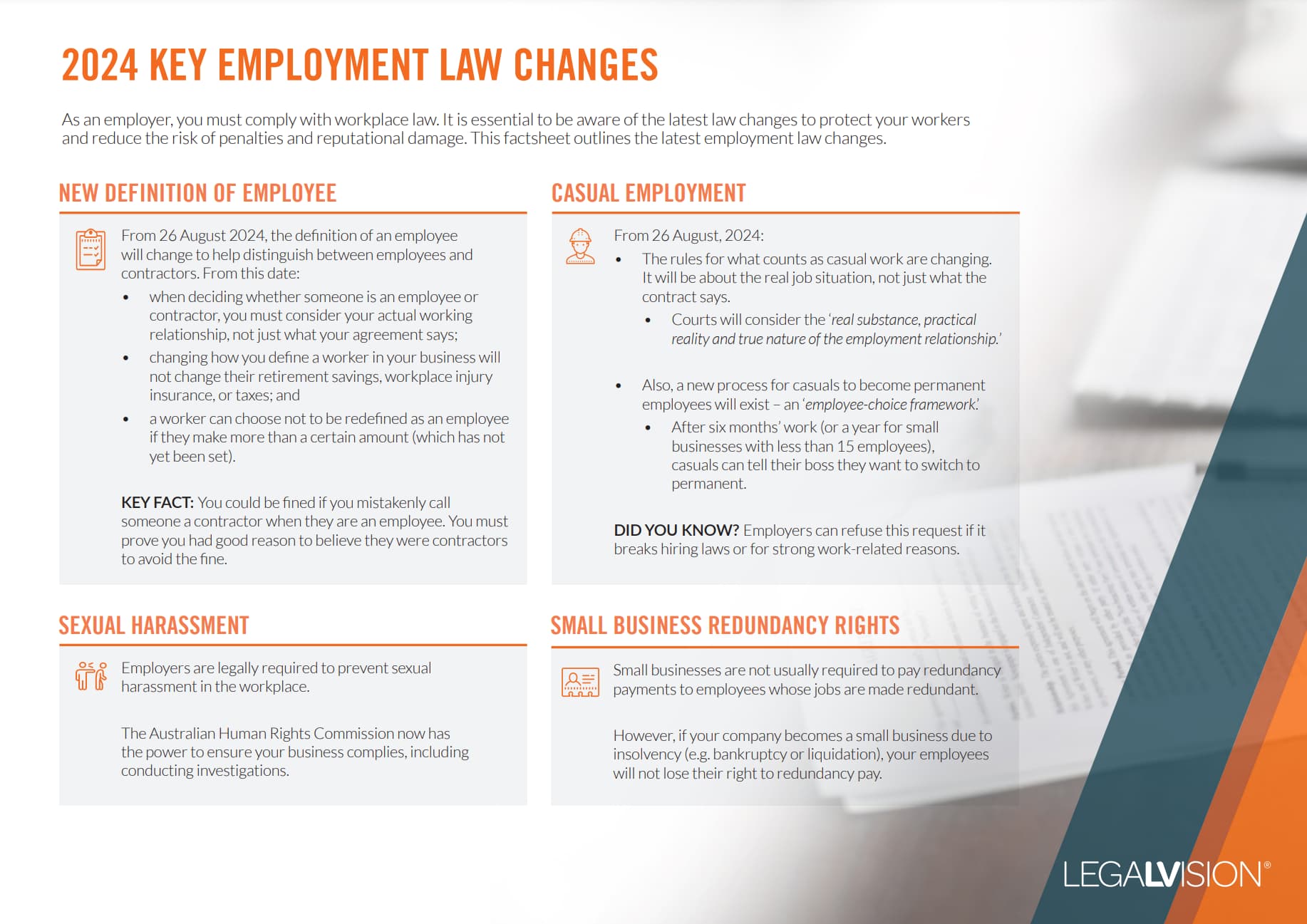When an employee leaves your business, they also take knowledge, information, and connections with them that they can use for the rest of their careers. As an employer, it is normal to want to protect your company’s interests, and you have the option of implementing certain clauses in your employment contracts that restrict your employees from undermining your business once they leave. This article unpacks what post-employment obligations are and your options for when an employee breaches them.
What Are Common Post-Employment Obligations?
It is important to draft your employment contracts with all of your expectations for your employees during and after their employment. Typical post-employment obligations include
- restraint of trade;
- confidentiality; and
- intellectual property.
Restraint of Trade
A restraint of trade clause prevents your employees from working with a competitor or soliciting clients, suppliers, or other employees away from your business. While these clauses can be useful, they are notoriously difficult to enforce. A court will only enforce a restraint of trade clause if it is deemed reasonably necessary to protect legitimate business interests.
Confidentiality
Employees inevitably gain access to confidential information when working. This information includes that which is not in the public domain, such as client lists or trade secrets. Confidentiality obligations exist even when you do not explicitly state them in an employment contract.
However, it is in your best interest to define confidential information and set out what employees must do with this information when leaving in your employment contracts. By doing so, you can make your expectations clear and defend yourself in any potential disputes.
Intellectual Property
You should include a clause in your contracts that states that you, as the employer, own all intellectual property developed by employees during the course of their employment. Intellectual property includes:
- creations of the mind;
- inventions;
- designs; or
- branding.
This ensures that your employees do not reuse material that they have created for your business in other jobs or creative pursuits.
How Might Employees Breach Their Post-Employment Obligations?
Your former employee may breach their post-employment obligations by:
- setting up a business that is very similar to your business and trying to poach your clients and current employees;
- continuing to use your company logo and address on their own website despite having stopped working for you; or
- sharing confidential information about your clients to people outside of your business, thereby tarnishing your company’s reputation.
What Can I Do if My Employee Commits a Breach?
The easiest way to prevent breaches before they happen is to remind your employees of their post-employment obligations before they leave your business. However, in the event of a breach, there are some steps you may take to manage the issue.
Firstly, you should consider informal approaches to stop past employees from breaching their post-employment restraints. The most effective way of doing so is to send a letter to the former employee in writing stating that they have breached their obligations in the employment contract and asking them to cease doing so.
If your former employee does not stop breaching their obligations after you have sent them a letter, you might need to go to court to resolve the matter. The Court may grant the remedies, including:
- an injunction to stop the former employee from breaching their obligations;
- damages or compensation; and
- an account of profits, meaning the former employee is ordered to pay you back the profits they obtained through breaching their obligations.
Additionally, the Court may request your former employee to return company property and wipe confidential information from any devices the employee might have.
Important Court Cases
Liberty Financial Pty Ltd v Jugovic [2021]
In this case, Mr Jugovic was a senior manager at Liberty for over a decade and worked closely with Liberty’s clients. A week before resigning, he signed a contract with a competitor. Liberty went to enforce a restraint of trade clause that prevented employment with a competitor for one year.
The court granted an interim injunction that enforced the restraint of trade and prevented Mr Jugovic from working with the competitor. This shows how the court may be in favour of a well-drafted restraint of trade clause that is necessary for protecting business interests.
One Dream Enterprises Pty Ltd v Simmonds & Ors [2019] VSC 304
Three employees of One Dream resigned and created a rival agency. As a result, One Dream lost business to their new rival business and brought proceedings to restrain these employees from misusing confidential information. Here, the court held in favour of the employees since there was no evidence that they had misused any confidential information.

As an employer, it is essential to understand what employment laws have changed and their implications for your business — particularly the changes to the Fair Work Act 2009 through the new Closing the Loopholes legislation.
Key Takeaways
Post-employment obligations, such as confidentiality and restraint of trade, are important in protecting your business interests. When an employee breaches their obligations, you, as an employer, can send them formal letters requiring them to cease breaching their employment contract. If that does not work, you may take their employees to Court to seek damages or grant an injunction.
If your employee has breached their employment contract, our experienced employment lawyers can assist as part of our LegalVision membership. For a low monthly fee, you will have unlimited access to lawyers to answer your questions and draft and review your documents. Call us today on 1300 544 755 or visit our membership page.
We appreciate your feedback – your submission has been successfully received.











